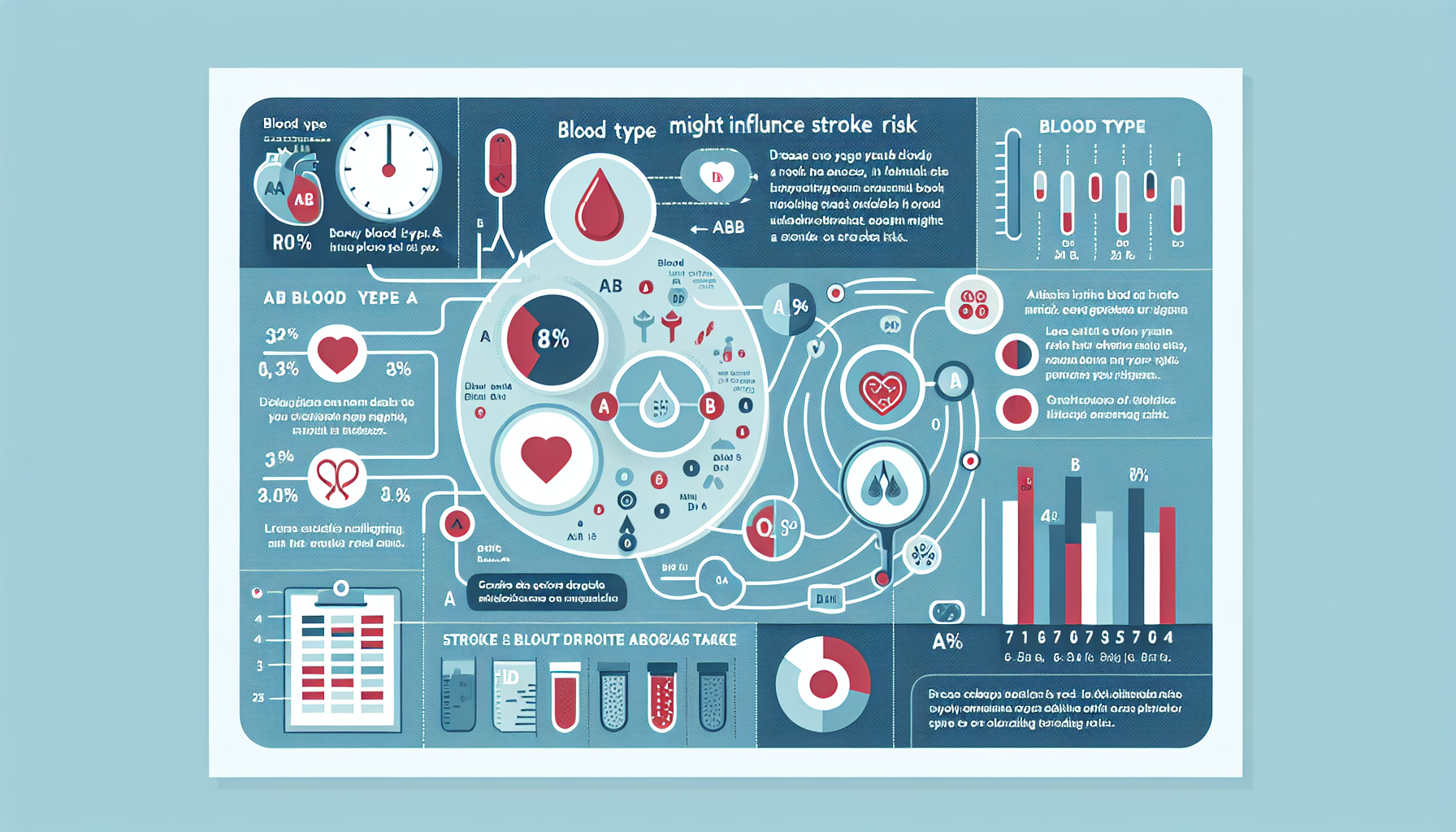Title: Unveiling the Connection: How Your Blood Type May Influence Stroke Risk
Introduction:
Could something as intrinsic as your blood type determine more than just donation compatibility? Recent research suggests a surprising potential link between blood types and the risk of early stroke. With brain health being a crucial component of overall wellbeing, this revelation might just make you view your blood type in a new light.
The Surprising Connection Between Blood Type and Stroke Risk
In an intriguing study conducted by researchers at the University of Maryland, evidence has emerged suggesting that individuals with blood type A might face a higher risk of early-stroke compared to other blood types. For those unacquainted, a stroke occurs when the blood supply to part of your brain is interrupted or reduced, preventing brain tissue from getting oxygen and nutrients. Within the spectrum of stroke types, ischemic strokes – caused by blood clots that block blood flow to the brain – account for about 87 percent of cases.
The study examined genetic data from 48 studies and included over 17,000 patients who had experienced a stroke alongside 600,000 healthy individuals. Astonishingly, it found that those with blood type A had a 16% higher likelihood of experiencing an early-stroke compared to peers with other blood types.
Why Blood Type Matters: Exploring the Biological Underpinnings
Despite these findings, the exact mechanism linking blood type A to an increased stroke risk remains a mystery that researchers are eager to solve. Dr. Steven J. Kittner, co-lead of the study, speculated that the link might be due to the role of blood-clotting agents like platelets and clotting proteins. These components circulate in the blood and could potentially influence clot formation, thereby affecting stroke risk.
Interestingly, past studies have explored similar territory, discovering that individuals with blood type A are also more susceptible to deep vein thrombosis – a condition where blood clots form in deep veins, often in the legs. This might further underscore a unique biological vulnerability tied to blood type A that demands further investigation.
The Rising Incidence of Strokes: A Call for Preventative Measures
The ever-increasing incidence of strokes is a sobering reality that adds urgency to the blood type debate. For instance, a rise of 9.8% in stroke cases was recorded last year compared to 2012. Significantly, the number of recurrent strokes also increased, highlighting the need for effective preventative strategies.
Stroke prevention hinges heavily on lifestyle modifications. Regular exercise, a balanced diet, and managing stress levels are cornerstone recommendations to safeguard against strokes. Moreover, mitigating known risk factors such as high blood pressure, diabetes, and elevated cholesterol is crucial. Smoking cessation and moderating alcohol intake can also make a tremendous difference.
O Blood Type: A Protective Barrier?
The same study brought forth an interesting observation: individuals with blood type O appear to enjoy a protective effect, reducing stroke risk by 12% relative to other blood types. This discovery adds another layer of complexity and intrigue to the role blood type plays in health, perhaps offering a glimpse into potential genetic advantages inherent in different blood types.
Understanding why blood type O confers such protection might open up new avenues for intervention, not just for strokes but possibly for other conditions linked to vascular health. While fascinating, this area still needs focused research to decipher the specific mechanisms at play.
Future Paths: The Need for Further Research
Dr. Kittner and his team emphasize the need for continued research. The goal is to unravel the perplexing connection between blood type and early-stroke risk. Such investigations could ultimately lead to personalized medicine approaches, where blood type becomes one of the factors in assessing an individual's stroke risk profile.
Despite the intriguing findings, researchers acknowledge the complexity of stroke etiology. Blood type is but one of many factors contributing to stroke risk, and it's vital not to view it in isolation. Genetics, lifestyle, and environmental factors also play significant roles in determining stroke outcomes.
Conclusion: Beyond the Surface – What Does This Mean for You?
This emerging research might have you asking – should you be worried about your blood type? Not necessarily. The findings give us an advanced starting point for personalized health strategies, tailored to an individual’s genetic and biological blueprint. The real message here is that while genetics can predispose individuals to certain health risks, proactive lifestyle management remains our most powerful tool.
As research continues to evolve, embracing a healthy lifestyle while staying informed of potential health risks tied to attributes like blood type will go a long way in ensuring well-being. Ultimately, by understanding and acting on our unique predispositions, we can take charge of our health narratives.
So, what's your blood type, and how might it shape your health journey in ways you didn’t previously consider? Let's continue the quest for answers, guided by science and self-awareness.

